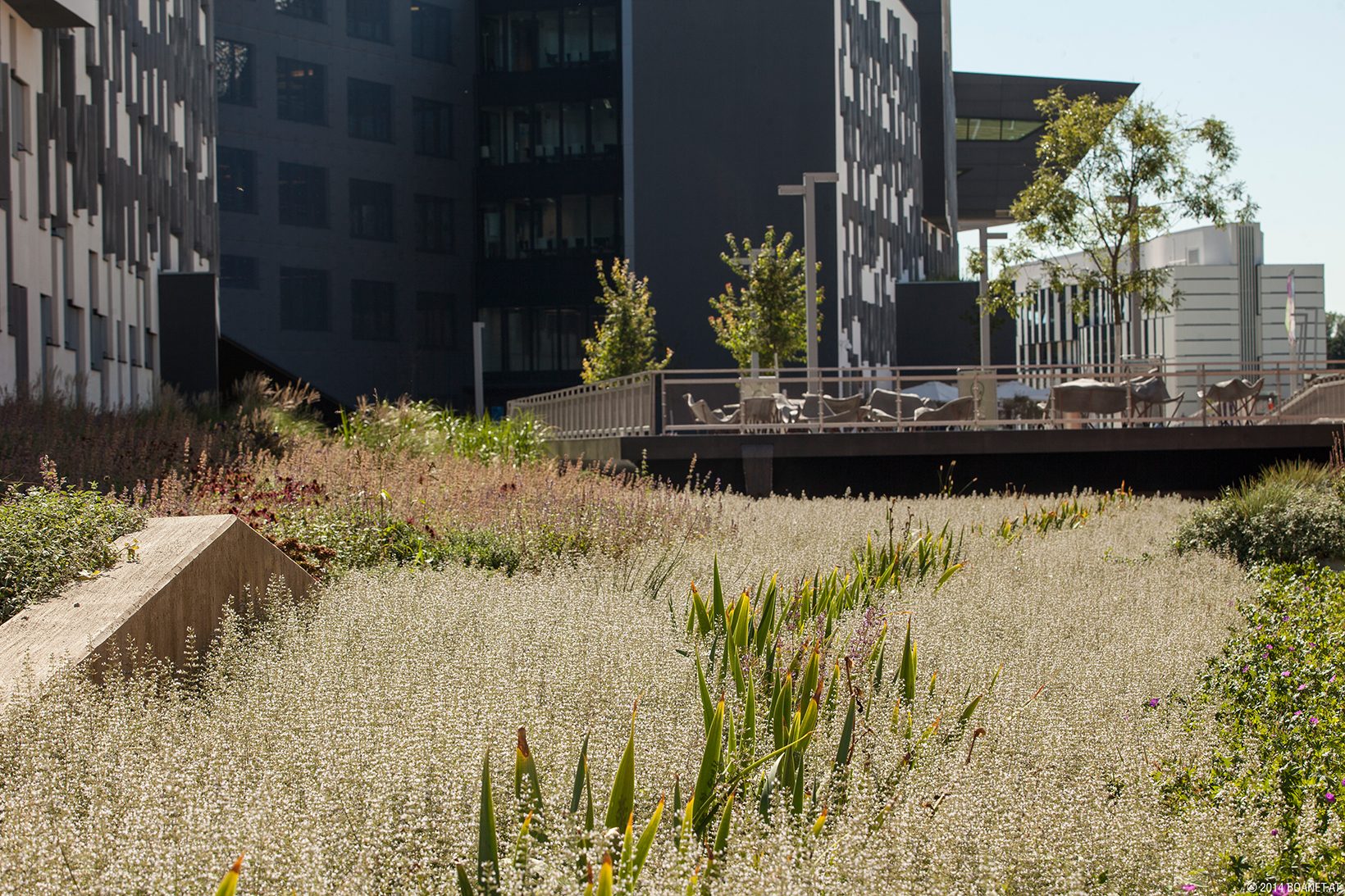We have a worldwide network of partner universities spanning the globe, with partners in 55 countries and on all continents. Within this network we encourage a high level of student and faculty mobility, conclude research partnerships, and develop joint academic programs like the Joint International Summer University programs, double degree programs, the Vienna Innovation ProgramWU, and the brand new Central Europe Connect joint certificate program.
Partner universities and student mobility in the 2017/18 academic year
Thinking Internationally
Membership in international networks is crucial in a globalized world. The intensive exchange of ideas with other renowned schools helps us see our activities from a fresh perspective and to continually grow and develop as a university.
Principles for Responsible Management Education (PRME)
PRME is an organization consisting of 60 universities. Since 2007, PRME has been acting as an international task force, developing a platform to foster responsible and sustainable practices in management education. WU defines itself as a responsible university and uses the six principles set out by PRME, which are based on the UN Global Compact, as points of orientation for its work. The principles offer guidelines for integrating sustainability and responsibility into the training provided to future executives. WU has already implemented these guidelines in a number of areas:
Teaching: WU’s goal is to teach its students about the social and ecological contexts and impacts of business activities. Graduates should have the expertise necessary to think and act sustainably.
Research: Many of WU’s institutes, research institutes, and competence centers deal with topics related to sustainability and social responsibility. They are involved in constant discourse with researchers, the media, and political decision makers. Knowledge generated by our research is of course also included into WU’s teaching, making it accessible to students.
Campus management: With its modern campus opened in 2013, WU sets new standards in green operations and workplace design. We are working hard to keep the university’s ecological footprint as small as possible, while maintaining a high-quality working and studying environment.
Networks: WU has a well-established network in the field of sustainability and contributes actively to academic and social discourse in this area.

The Global Alliance in Management Education (CEMS)
The CEMS network was established 30 years ago by leading business and economics universities (Università Bocconi, ESADE, HEC Paris, and the University of Cologne) with the goal of providing students with the training and education they need to lead multinational and multicultural organizations. WU has been a member of this network since 1990.
32 partner universities on all continents of the globe make up the CEMS network. CEMS also cooperates with 70 Corporate Partners (mostly multinational companies) and seven Social Partners (NGOs). Currently, 1,269 students from 73 different countries are enrolled in the Master in International Management degree program, and the program’s 14,429 alumni are employed in over 75 countries around the world.
The main element of the network is the Master in International Management (MIM) degree program, available in Austria exclusively at WU. WU’s CEMS/MIM program is among the best worldwide: The Financial Times’ global Masters in Management ranking lists it at an outstanding 13th place.
WU’s Master in International Management program is also regularly singled out as one of the best within the CEMS network itself. The 2018 CEMS Course of the Year Award went to Günter K. Stahl (Institute for International Business) for his course “Managing People, Teams and Organizations Across Cultures.”

Partnership in International Management (PIM)
Founded in 1973, PIM is an association of 65 leading business and economics universities. WU is the only Austrian university to belong to this exclusive network.
The network’s goal is to foster cooperation between members, especially by creating joint academic programs and encouraging student mobility between member schools. Over 80% of the member schools are WU partner universities, and currently, approximately 50 of these universities offer exchange places to WU students.
In the 2017/18 academic year, 300 WU students (140 bachelor’s/160 master’s level) chose to go to a PIM member school on international exchange, and 275 incoming exchange students from PIM universities came to WU for a semester.
Traditionally, PIM counts as one of WU’s most important international networks, as it facilitates the development of contacts and mobility programs with non-European universities and provides a platform for joint initiatives with other top international schools. On April 5 and 6, 2018, a working group of the PIM New Membership Committee met at WU. The goal of the meeting was to define the network’s requirements for admitting new members to ensure a continuous positive development in the future.

International Legal Network of Excellence (THEMIS)
The THEMIS network focuses on international business law and is a joint initiative of nine international universities. All of these schools offer the THEMIS Certificate in International and Business Law program, which consists of three parts: an exchange semester abroad, an internship, and a seminar. Twelve WU students participated in the THEMIS exchange program in the 2017/18 winter semester, and WU hosted nine incoming exchange students from five partner universities during this time.
Members of the THEMIS Network:
- ESADE, Barcelona
- Freie Universität Berlin
- Maastricht University
- Singapore Management University
- Università Bocconi, Milan
- Université Paris-Est Créteil Val de Marne
- University of St. Gallen
- Universidade Nova de Lisboa
- WU Vienna

The Central European Exchange Program for University Studies (CEEPUS)
The Central European Exchange Program for University Studies (CEEPUS) promotes student and faculty mobility in Central, Eastern, and Southeastern Europe. WU coordinates the AMADEUS network and is a partner in the REDENE network. The AMADEUS network, one of the largest CEEPUS networks, was founded in the 1994/95 academic year. In 2017/18, CEEPUS gave 20 students from Central and Eastern Europe the opportunity to spend an exchange semester at WU, and five guest lecturers came to Vienna to share their expertise with WU’s students.
Participants in the Central Europe Connect joint certificate program also received CEEPUS scholarships.
The following new members joined the CEEPUS AMADEUS network in 2018:
- SGH Warsaw School of Economics
- University of Ljubljana

Austria-Illinois Exchange Program
WU has a particularly intensive exchange program with the University of Illinois at Urbana-Champaign. This cooperation gives WU students the opportunity to spend a semester in the USA at the University of Illinois at Urbana-Champaign. Currently, 12 places per semester are available at the College of Business and ten at the College of Liberal Arts and Sciences. In return, large groups of students from Illinois come to Vienna to spend a semester at WU very year.
In May, the course “Negotiating Internationally” was taught on Campus WU. The two schools also continued with measures to strengthen their exchange agreement in the field of economics. These initiatives were funded in part by the Erasmus+ International Credit Mobility program.
Network for European and US Regional and Urban Studies (NEURUS)
As a member of the Network for European and US Regional and Urban Studies (NEURUS), WU cooperates with partner schools in the field of urban and regional development. The program gives students the opportunity to spend a semester as a NEURUS Exchange Fellow, conducting research for their master’s or doctoral thesis at one of the partner universities.
Global Business School Network (GBSN)
GBSN is a group of outstanding business and economics universities with the common goal of building up a solid, local management education network in developing countries. WU contributes actively to this initiative, and offered scholarships for high-potential students from GBSN partner schools in developing countries in 2018: Six students from Egypt, Pakistan, Columbia, and Ghana were selected to receive the scholarships to attend the International Summer UniversityWU.

Societal Impact and Global Management Alliance (SIGMA)
SIGMA is an international alliance of outstanding business and economics universities with a strong focus on issues relating to sustainability and social responsibility in research and teaching. Aside from WU, the following schools are members of SIGMA: ESADE Business School, Fundacão Getulio Vargas, Hitotsubashi University, Renmin University of China, Singapore Management University, Université Paris-Dauphine, and the University of St. Gallen.
In 2018, SIGMA was chaired by WU Rector Edeltraud Hanappi-Egger. For this reason, representatives of all SIGMA schools came to WU for the annual alliance meeting on December 14. Topics covered at the meeting included the progress of various working groups on the economics of health and aging and sustainable development. Participants were also very interested in a talk on cryptoeconomics – WU is a leading competence center worldwide in this new field of research.
The joint course “SIGMA Responsible Business Course” is also offered as part of the SIGMA Alliance, intended to teach students more about the UN Sustainable Development Goals (SDG). The course is held in a blended learning format, combining online units with classroom lectures. The online modules were developed jointly by six SIGMA Alliance universities. As a main feature of the course, students have the opportunity to work in virtual teams spanning different countries and institutions to solve a best-practice case study involving a company or organization related to the SDGs.

